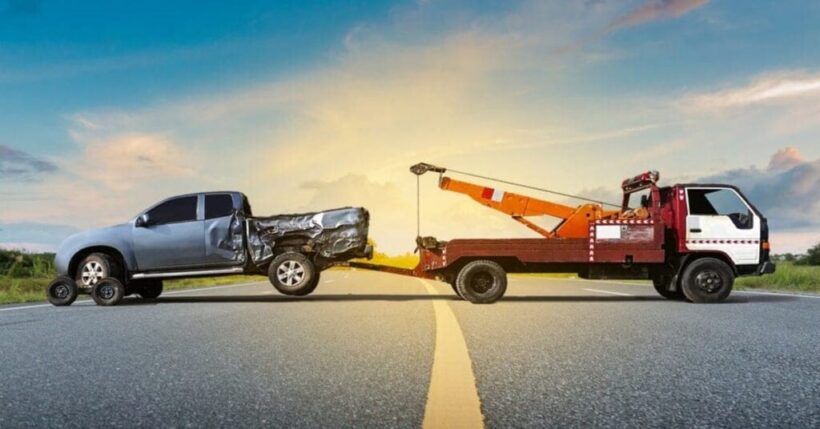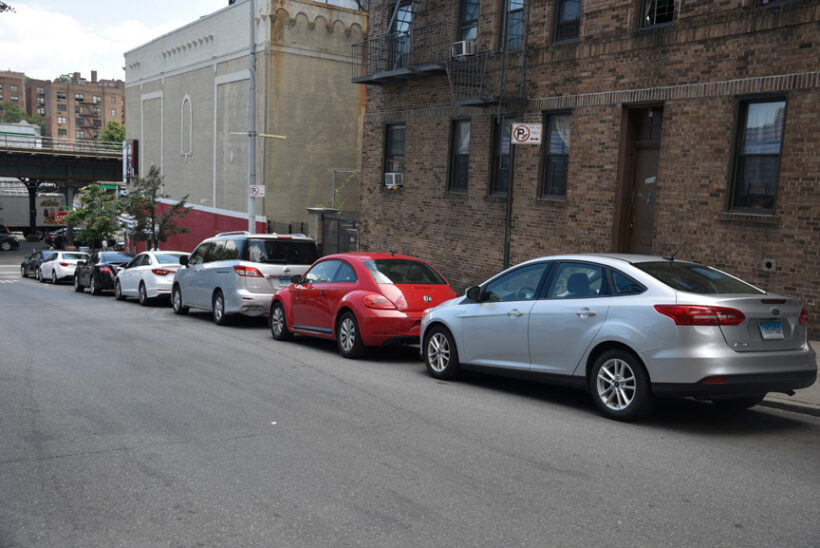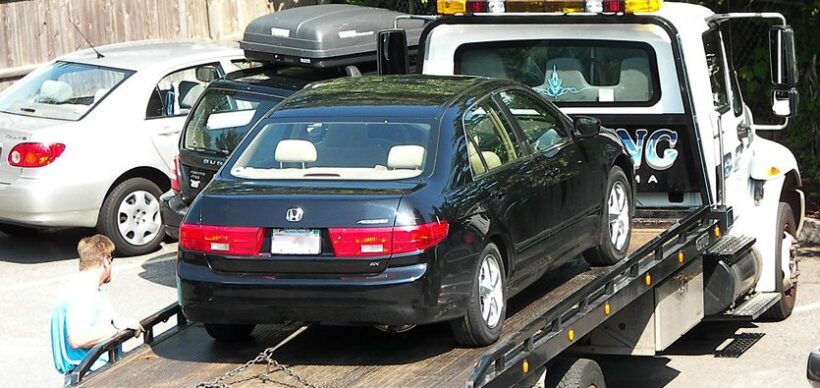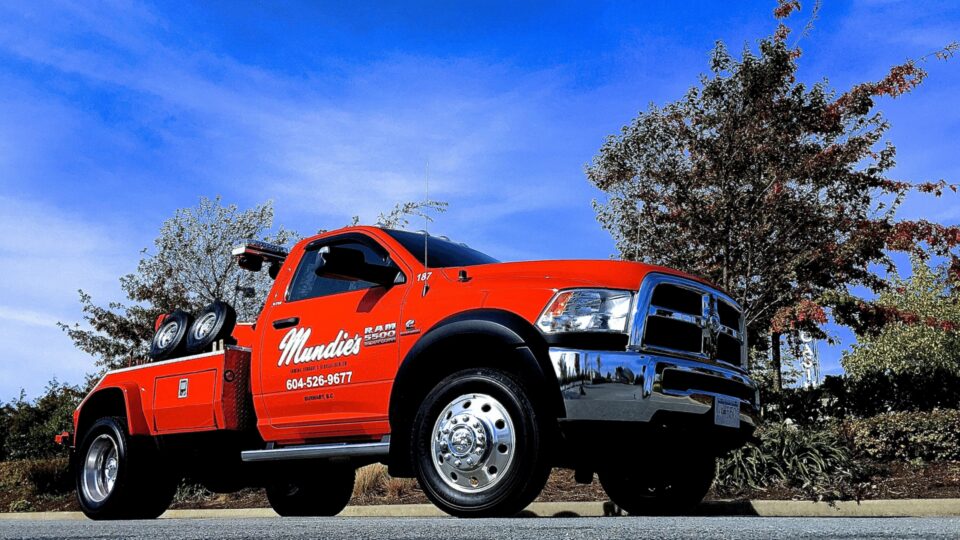Australia’s cities are getting busier and our roads are getting more congested. That is quickly creating a parking nightmare all over the country, and towing Gold Coast services are more in demand than ever.
As the owner of private property you have a right to control who parks on your land. But it’s not always simple to have a car towed. As the owner of the land you have certain responsibilities when towing, and you could find yourself paying huge repair bills if things go wrong.
To make matters more confusing, it’s often difficult to have a car towed away from your private home. In this article we’re going to explore when you can and can’t have a car towed from your property and whether you require towing Gold Coast services. In addition to this, what you need to do to meet your obligations as the land owner.
Is it Legal to Tow a Car Off My Property?

The short answer is yes. If you are the owner or occupier of private property, you have a right to decide when and how visitors can park on the land.
The slightly longer answer is that you can only have a car towed if you meet your obligations. In most cases, that means it’s unadvisable for private homeowners to have a car towed off their property. If someone has parked their car on your property against your wishes – such as by parking on your driveway or nature strip – you should contact your local council and report the issue. Allowing the council to handle towing means you won’t be out of pocket and it protects you from any claims made by the owner of the vehicle.
As the owner or occupier of private property, especially when it incorporates a regulated parking area such as a designated carpark, you possess the inherent right to address and rectify instances of vehicles being parked on your premises against your explicit wishes. This authority is a pivotal aspect of property ownership, granting you the capacity to maintain order, security, and accessibility within your designated parking zones.
In the context of Queensland, the towing of vehicles from private property is a tightly regulated process, overseen by government authorities to ensure fairness, transparency, and the safeguarding of the rights and interests of all parties involved. To uphold these principles, the government mandates that towing activities on private property can only be conducted by accredited towing companies. These towing companies undergo rigorous scrutiny, meet specific standards, and receive the requisite authorization to execute these operations. By adhering to these regulations, the Queensland government seeks to strike a balance between property owners’ rights and the imperative of upholding established legal procedures, ensuring that the towing process remains equitable, efficient, and legally sound.
Where Cars Can Park on Suburban Streets

You can only have a car towed off your property if it contains a regulated parking area (e.g. a signed car park). Unregulated parking areas – such as suburban streets – are subject to different rules, and you can only have a car towed away if it’s parked illegally.
A car is parked illegally if it is:
- Blocking your driveway
- Parked across a footpath or nature strip
- Blocking a bike path or shared pathway
- Parked on a dividing island
- Parked within 20m of a lit intersection, or 10m of an unlit intersection
- Parked against the flow of traffic
- Blocking the roadway
If you come home to discover that someone is blocking your driveway or parked on your property against your wishes, you should contact your local council or a non-emergency police line. We don’t recommend having cars towed away from your home. This could make you liable for any towing fees or damage caused. Allowing the council or police to tow the car protects you, the vehicle and the towing company from liability.
How to Manage Your Responsibilities When Towing Parked Cars

The owners of private property always have the right to decide whether other road users can park on the land. However, moving other people’s cars comes with certain risks, so it’s important to meet your obligations when having a vehicle towed.
You can protect your business from claims made by the owners of towed vehicles by:
- Posting official signage – if you own a regulated parking area (such as a car park outside your business), you must post signage showing when and how the area can be used. Signage should be clear, concise and highly visible, and it should clearly state that the owner of the vehicle is responsible for the towing expense.
- Engage an accredited towing company – towing from private property must be handled by accredited towing operators. We recommend that you build a relationship with a reputable towing Gold Coast company. Having a regular relationship ensures the work is handled ethically and legally, and it can help you to get parked cars moved faster.
- Avoid wheel clamping – it is always illegal to detain a vehicle in Queensland. Don’t use wheel clamps, bollards or other objects to block cars that are parked illegally.
- Install parking bollards – removable bollards are a simple and affordable way to control how your parking spaces are used. Some types of bollards are specifically designed to be used for reserved parking (such as in housing estates), and they are an affordable way to prevent unwanted cars from parking in your spot.
By diligently following these aforementioned guidelines, you not only safeguard your own interests but also fulfill your responsibilities as a property owner, minimizing the likelihood of bearing the financial burden associated with towing expenses or the potential consequences stemming from towing illegally parked vehicles. These measures not only underscore your commitment to maintaining order on your property but also serve as a testament to your adherence to legal and ethical standards.
Taking these precautions demonstrates a proactive approach to addressing parking concerns on your premises while mitigating any possible risks. It’s imperative to strike a delicate balance between asserting your property rights as the owner or occupier and adhering to established legal protocols. This equilibrium ensures that you act within the boundaries of the law and respect the rights and interests of others, promoting a harmonious and lawful coexistence within your community. By adhering to these principles, you foster a sense of fairness and accountability, which can contribute to a more peaceful and respectful environment for all parties involved. Ultimately, by following these guidelines, you actively contribute to the overall well-being and integrity of your property and its surroundings.

